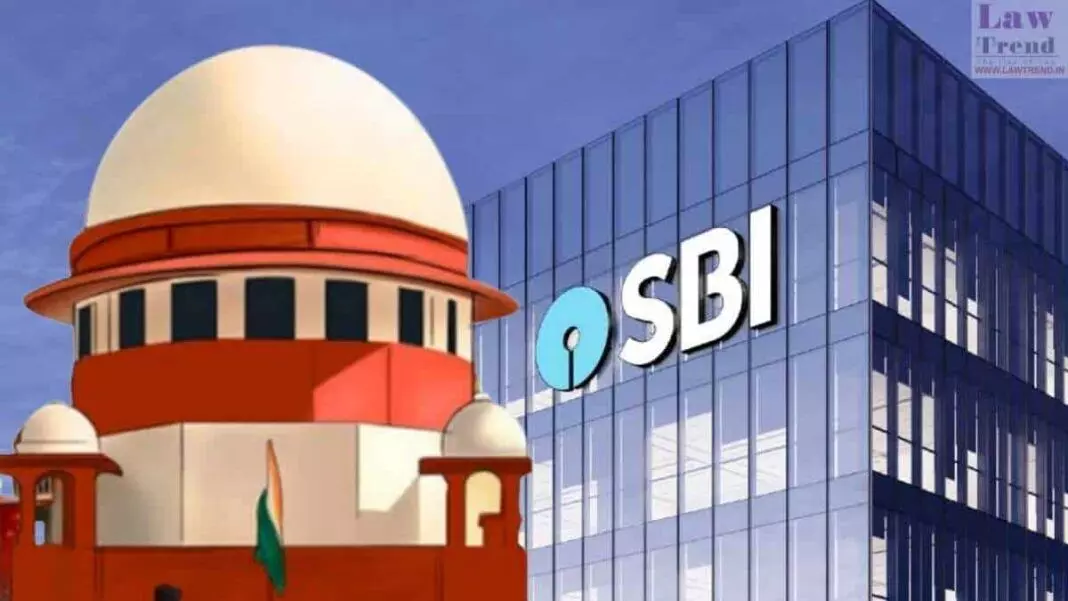SBI accused of hiding information about electoral bonds
The State Bank of India has sought four months' time from the Supreme Court to share information related to electoral bonds, prompting questions about the need for such a lengthy delay.;
Images Credit -Social Media

What is the intention of State Bank of India i.e. SBI regarding Electoral Bond? What does he want to hide in the information related to the Electoral Board, why does he need four months' time for this work, maintaining silence till March 4, two days before the deadline set by the Supreme Court of India and then asking for four months' extension from the court, All these questions point towards the fact that there is something black in the dal or it can be said that the entire dal is black.
Now all eyes are on the Supreme Court of India .The court may want to get the information from SBI, but whether it will do so, the question at present is this.
Meanwhile, Apoorva, a user on the social media platform Documents related to this have also been shared on X. When the situation is like this then why does SBI want to hide the information? Who is stopping it from doing so?
Obviously the government is behind stopping SBI. She does not want the public to know her secret till the upcoming elections. As soon as the names of who are the capitalists and who are the donors become public, the veil of electoral bonds will be lifted and the BJP government, which is wearing the garb of honesty and purity in politics, will be exposed. The government's effort is to prevent any such information from going into the public domain till the elections at any cost and it will try its best to do so.
Background
Electoral bonds were introduced by the Narendra Modi government in 2017. The bonds are bearer instruments, which means that they can be purchased by anyone and can be used to donate money to political parties.
The government has claimed that electoral bonds will bring transparency to political funding. However, critics have argued that the bonds are opaque and allow for anonymous donations.
The Supreme Court of India has been hearing a petition challenging the constitutional validity of electoral bonds. The case is still pending.
SBI's argument
In its decision of 15 February, the Supreme Court of India had ordered that by 6 March, SBI will have to submit the details of electoral bonds purchased between 12 April 2019 to 15 February 2024 to the Election Commission.
The court had said in the order that the details including date of purchase of electoral bonds, name of the donor, which party the donation has been made and the amount of donation, will be made public by the Election Commission by March 13.
Two days before the deadline given by the Supreme Court, SBI has sought an extension of four months from the court. In the petition, SBI said that 22,217 electoral bonds were issued to different parties between April 12, 2019 and February 15, 2024.
SBI said that since the redeemed bonds were sent by authorized branches to the main SBI branch in Mumbai, it would have to be decoded and compiled.
ADR preparation
Association for Democratic Reforms (ADR) is one of the four petitioners in the electoral bond case. ADR is ready to challenge in the court the time sought by SBI. Congress also asked 'who is putting pressure on SBI' to postpone till June 30? Congress says that this data will be available in just 'one click'.
You can get instant information
RTI activist Janam Parekh says that information related to electoral bonds can be obtained immediately provided SBI wants to provide it. They say that such bonds are available only in 29 designated branches of SBI. If you buy electoral bonds, first of all you will have to go to one of the 29 branches of SBI. Before giving you the bond they will write a unique number on the bond.
When the political party then goes back to SBI to encash it, the bank checks the number and name of the purchaser hidden in the records before encashing the bond. They also enter the names of political parties in their records. All entries are recorded in real time.
Founder and Trustee of ADR Prof. According to Jagdeep Chhokar, all the records related to electoral bonds can be compiled very easily and SBI's argument is not acceptable in this matter. Everyone knows which political party has received the biggest share of election donations and is currently in power. The effort is to somehow protect this information from being revealed till the elections.
The SBI's request for an extension has raised questions about the transparency of electoral bonds. The bank's claims that it needs more time to compile the data have been met with skepticism by many.
The Supreme Court's of India decision on SBI's petition will be closely watched. The case could have a significant impact on the future of electoral bonds in India.

